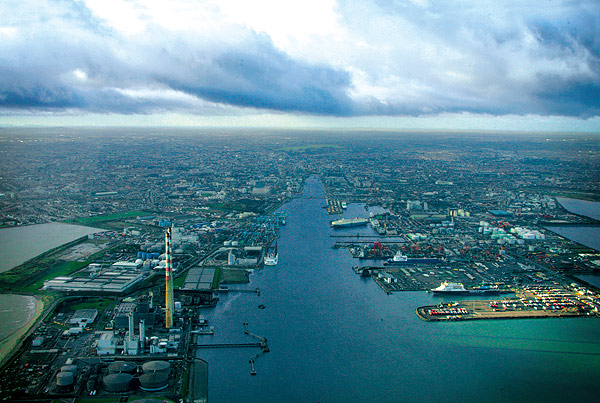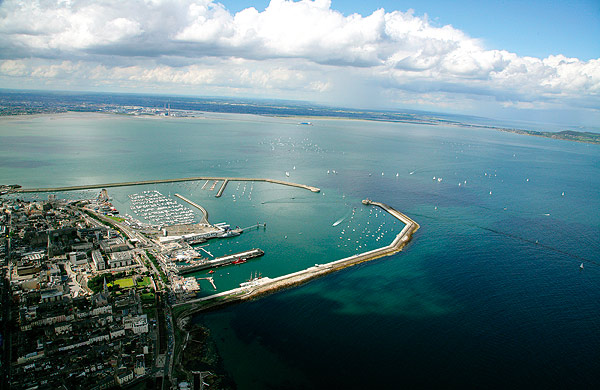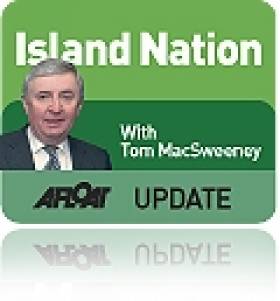Displaying items by tag: port companies
Privatisation of the Ports Should be Strongly Opposed
In the first installment of a new weekly maritime blog on Afloat.ie, marine correspondent Tom MacSweeney says our ports are vital national assets;
It astonishes me that the Government should consider selling off the country’s ten major port companies - Dublin, Cork, Dun Laoghaire, Waterford, Shannon/Foynes, Drogheda, Galway, Wicklow, New Ross and Dundalk.
Ninety-five per cent of Irish exports and imports go by sea through our ports which are the vital entry and exit points of our transport system. To consider privatising them is an example of how unaware the Government is that Ireland is a small island community on the periphery of Europe.
The lesson of transport chaos caused by the Icelandic ash grounding aircraft this year has not been learned. It demonstrated how vital maritime transport is to this island nation.

Dublin Port Company - a profitable state company
This is a smash-and-grab raid, redolent of a bankrupt Government philosophy. It is one thing to consider selling off the family jewels when, at least, the householder would still have access to the house. To sell off the ports is akin to the householder selling off the driveway, porch and front door to the house, then having to pay for the right to use them to enter the house in the future.
The Government has failed to develop a national ports policy. In the Progressive Democrat-fuelled era when privatisation, competition and profits were its driving force, the ports were moved out of direct State ownership and turned into semi-State competing bodies. Iarnrod Eireann was permitted to largely opt out of rail freight operations through the ports. Turned loose to compete against each other, the port companies followed no overall national policy for the benefit of the nation and now their future has been put in the hands of a group whose chairman advocates the sale of State companies and has already shown a lack of concern for the marine sector by shutting down the national sail training programme.
Aspects of journalism these days disappoint me after 45 years in the profession. Colm McCarthy who led Bord Snip Nua, is now chairing what is, effectively, ‘board privatisation,’ yet sections of the media seem largely to accept his views without question. I have not seen a lot of reportage which refers to his scathing opposition to the building of the DART, the Dublin Area Rapid Transport system, which he described as financial insanity and profligacy. Had those views been accepted, there would be no DART in Dublin, the consequences of which today are interesting to consider.
Privatisation of the ports should be strongly opposed. These are vital national assets. The lesson of selling-off Eircom has also, apparently, been forgotten by the Government.

Dun Laoghaire Port on Dublin Bay
A Republic should be an entity in which there is open debate about public policy, not decision-making by elites. Flogging off our best assets, which is what this move by the Government is about, will not solve the nation’s problems. It is shocking to think that money from the sale of our vital transport arteries, the ports, could go to benefit those property speculators and banks which have bankrupted this nation.
This article is reprinted by permission of the CORK EVENING ECHO in which Tom MacSweeney writes maritime columns twice weekly. Evening Echo website: www.eecho.ie
























































